Food Tourism

How does food tourism impact local economies and cultures ?
Food tourism, also known as culinary or gastronomy tourism, has significant impacts on local economies and cultures. Economic benefits include job creation, increased revenue for local businesses, tourism diversification, infrastructure development, and value addition to local products. Culturally, food tourism promotes the preservation of traditions, cultural exchange, heritage promotion, adaptation and innovation, and community engagement. However, there are potential downsides such as overcommercialization, resource depletion, and pricing issues that require careful management to ensure authenticity and sustainability.

How do food festivals impact tourism in a region ?
Food festivals significantly impact tourism in a region, offering economic benefits and promoting cultural exchange. They attract visitors, boost spending, create jobs, and support local businesses. Culinary diversity, community engagement, and media exposure enhance the region's brand image. Sustainability is crucial for supporting local farmers and managing waste. Successful examples include tomato, wine & cheese, and seafood festivals. Food festivals are powerful tools for driving tourism and enriching the travel experience.
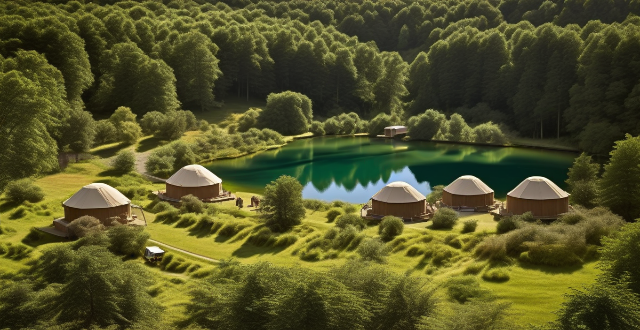
What are some examples of negative impacts of tourism on the environment ?
Tourism can have negative impacts on the environment, including destruction of natural habitats, pollution, overuse of resources, cultural impacts, physical degradation, and contributing to climate change. It is important to manage tourism sustainably to minimize these effects and preserve the planet's natural beauty for future generations.

How does eco-tourism impact local communities ?
Eco-tourism, a form of sustainable tourism, focuses on responsible travel to natural areas that conserves the environment and improves the well-being of local people. It has a positive impact on local communities in various ways, including economic benefits such as job creation, income generation, infrastructure development, and foreign exchange earnings. Eco-tourism also promotes environmental conservation by encouraging sustainable practices among local communities, such as habitat protection, wildlife conservation, and education on sustainable practices. Additionally, it helps preserve cultural heritage by showcasing local traditions, customs, and way of life, as well as promoting cultural exchange and artisan development. Finally, eco-tourism contributes to social development by improving healthcare access, creating education opportunities, promoting gender equality, and empowering local communities through involvement in decision-making processes related to tourism development and management.

What is the future of space tourism and its implications on Earth's resources ?
The development of space tourism by private companies like SpaceX, Blue Origin, and Virgin Galactic may make it more accessible to the public in the future. However, it raises concerns about its environmental impact, economic considerations, ethical concerns, and long-term sustainability. It is crucial to consider these implications to ensure responsible use of Earth's resources while exploring space tourism.
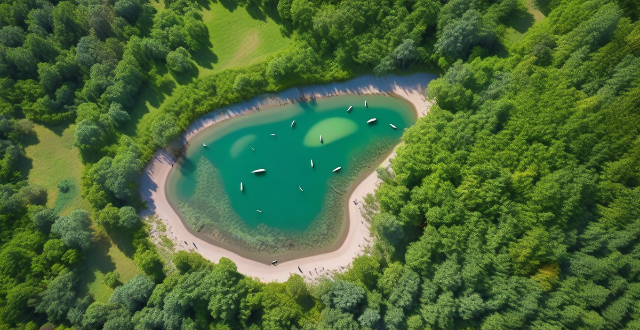
What are some popular eco-tourism destinations around the world ?
Eco-tourism is a form of tourism that focuses on conserving the environment and improving the well-being of local communities. Some popular eco-tourism destinations around the world include Costa Rica, New Zealand, Galapagos Islands, Iceland, and Borneo. In Costa Rica, visitors can enjoy bird watching, hiking in national parks, visiting turtle nesting sites, and surfing and snorkeling in the Pacific Ocean. In New Zealand, visitors can visit glaciers and fiords, trek through national parks, watch whales and dolphins in the Bay of Islands, and participate in Maori cultural experiences. The Galapagos Islands offer snorkeling with sea lions and marine iguanas, watching giant tortoises and land iguanas in their natural habitat, hiking through volcanic landscapes, and visiting research stations and learning about conservation efforts. Iceland offers watching the Northern Lights, hiking through national parks and nature reserves, visiting geothermal areas and bathing in natural hot springs, and whale watching tours in the Atlantic Ocean. Finally, Borneo offers visiting orangutan sanctuaries and rehabilitation centers, trekking through rainforests and visiting caves, river cruising and exploring mangrove forests, and visiting traditional villages and experiencing local culture.

What strategies can low-income countries adopt to attract more tourists and boost their tourism industry ?
Low-income countries face challenges in attracting tourists due to limited infrastructure and resources, but can boost their tourism industry by developing infrastructure, promoting local culture, offering affordable packages, focusing on sustainable tourism, partnering with agencies, and improving safety.

What are the safety measures taken for space tourism ?
Space tourism requires rigorous safety measures, including physical trainingSpace tourism requires rigorous safety measures, including physical trainingancy, medical screenings, including physical training, spacecraft redundancy, medical screenings, and reliable communication systems.
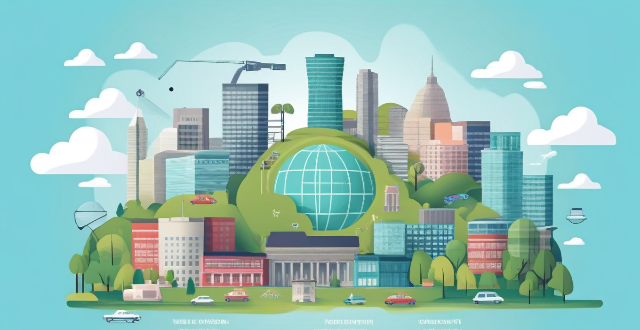
How is the tourism industry adapting to climate change-related risks and opportunities ?
The tourism industry, a significant contributor to the global economy, has been profoundly affected by climate change. The sector is now compelled to adapt to the associated risks and opportunities in various ways, including developing disaster management plans, building more resilient infrastructure, promoting sustainable tourism practices, diversifying offerings to attract tourists throughout the year, adopting green initiatives, developing nature-based tourism activities, creating wellness retreats, and providing educational programs about the connection between climate change and health. By implementing innovative solutions and embracing sustainability, the sector aims to mitigate the negative impacts of climate change and ensure its long-term viability.

How can I find local experience activities that support sustainable tourism ?
Finding local experience activities that support sustainable tourism is crucial for travelers who want to make a positive impact on the communities they visit. Here's how to do it: 1. **Research Online**: Use sustainable travel portals like Responsible Travel and Green Globe, and check local tourism boards and conservation groups for eco-friendly activities. 2. **Social Media and Forums**: Join travel communities on Facebook and Reddit, and follow influencers and bloggers who focus on sustainable travel for recommendations. 3. **Local Guidebooks and Magazines**: Look for specialized publications like "The Sustainable Travel Handbook" and local magazines featuring eco-friendly activities. 4. **Directly Contact Local Businesses**: Reach out to eco-friendly accommodations like eco-lodges and farm stays, and inquire at local restaurants, especially those focusing on farm-to-table or vegetarian options. 5. **Attend Local Events and Fairs**: Participate in environmental festivals and cultural fairs, and visit farmers markets and artisan markets for insights into sustainable activities. 6. **Use Mobile Applications**: Download apps like EcoCompanion and Book Different to find unique and sustainable accommodations and activities. 7. **Work with Local Guides**: Hire sustainable tour guides and participate in community-based tours that support local economies and conservation efforts. By employing these strategies, you can ensure your travels not only enrich your personal experiences but also contribute positively to the environment and local communities, promoting sustainable tourism practices.

How will commercial space tourism change the way we view Earth and space ?
The advent of commercial space tourism is set to revolutionize our understanding of both Earth and space by making space travel more accessible. It allows us to view our planet from a different perspective, fostering a greater sense of global awareness and interconnectedness, as well as an appreciation for the fragility and beauty of our planet. Additionally, it provides the opportunity for people to experience space firsthand, leading to a deeper understanding of the challenges and opportunities presented by space exploration, renewed interest in science and technology, and increased demand for education in STEM fields. Overall, commercial space tourism has the potential to change the way we view Earth and space by providing unique perspectives and experiences that can help us better appreciate our planet and expand our understanding of the universe beyond.

Are there any food festivals or events happening during my travel dates ?
The text is a comprehensive guide on how to find food festivals or events during one's travel dates. It outlines five key steps: checking local event calendars, using social media, asking locals or accommodation staff, visiting tourist information centers, and checking event listing websites. The text also provides examples of popular food festivals worldwide such as Tokyo Ramen Festival, Smorgasburg, Salon del Gusto, and Sydney Seafood Boil. It concludes by emphasizing the importance of researching in advance to enhance one's travel experience through food festivals and events.

What is the impact of sports tourism on community development ?
Sports tourism, which involves individuals or groups traveling to participate in sports events or recreational activities, has a significant impact on community development. This impact is multifaceted, encompassing economic, social, and environmental dimensions. Economically, sports tourism leads to job creation in various sectors, including tourism, event management, and infrastructure development. It also generates revenue through direct spending by visitors and increased tax revenue for local governments. Socially, it fosters community cohesion, promotes health and well-being, and provides educational and training opportunities. Environmentally, sports tourism can encourage sustainable practices and contribute to conservation efforts. Overall, sports tourism plays a crucial role in community development, but its benefits must be balanced against potential negative consequences.

How does eco-tourism contribute to conservation efforts ?
Eco-tourism, or ecological tourism, plays a crucial role in conservation efforts by fostering sustainable practices and raising awareness about the importance of preserving biodiversity and ecosystems. It contributes to conservation in several ways: 1. **Raising Environmental Awareness**: Informed decision-making and behavior changes support conservation goals through educational opportunities provided during eco-tourism experiences. 2. **Direct Conservation Funding**: Fees for park entry, donations to local conservation groups, and investments in infrastructure that benefits both tourists and wildlife directly fund conservation projects. 3. **Encouraging Sustainable Practices**: By promoting eco-friendly transportation, recycling, composting, and community involvement in sustainable practices, eco-tourism reduces the overall environmental footprint of tourism activities. 4. **Supporting Local Economies**: Eco-tourism supports local economies, creating an incentive for communities to protect their natural resources as they rely on them for income. 5. **Protecting Habitats and Biodiversity**: Attracting visitors to protected areas or regions where conservation is a priority helps maintain healthy ecosystems and diverse wildlife populations. Overall, eco-tourism demonstrates that tourism can be a force for good when it operates with a focus on ecological sustainability and community involvement.
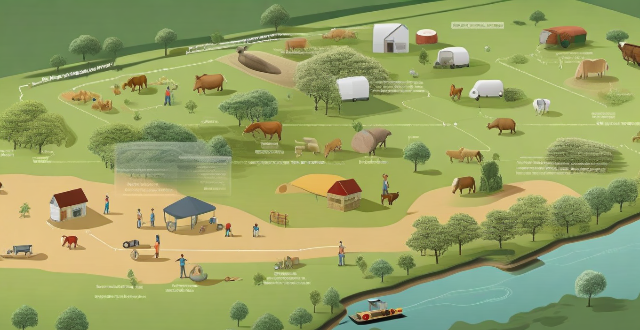
What are the economic consequences of climate change ?
The article discusses the economic consequences of climate change, including its impact on agriculture, tourism, energy, and infrastructure. In agriculture, decreased crop yields, loss of biodiversity, and increased extreme weather events can lead to higher food prices and reduced agricultural income for farmers. In tourism, loss of natural attractions, changes in seasonality, and health risks can result in reduced tourism revenue for affected regions. In energy, increased demand for cooling systems, disruption of energy production facilities, and transition to renewable energy sources can create new economic opportunities but also require significant investment and adaptation. In infrastructure, damage to critical infrastructure like roads, bridges, and buildings can result in costly repairs and replacements for governments and private sector organizations. Addressing these challenges requires coordinated action by governments, businesses, and individuals to reduce greenhouse gas emissions and adapt to the changing climate.
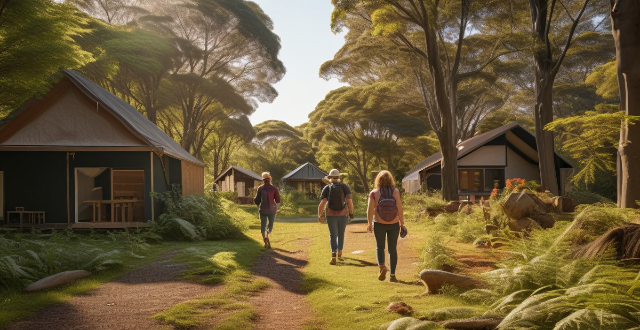
What role do tourists play in contributing to climate change through their travel activities ?
Tourism, while beneficial economically and culturally, contributes significantly to climate change due to carbon emissions from various travel activities. These include air travel, land travel, accommodation, activities, food and beverage choices, shopping habits, and packing and planning decisions. To mitigate this impact, tourists can offset emissions, choose sustainable travel options, stay in eco-friendly accommodations, participate in responsible tourism, reduce waste, support local produce, shop mindfully, plan ahead, advocate for change, and educate others on responsible travel practices.

Can technology help in making tourism more environmentally friendly and resilient to climate change ?
Tourism, a significant contributor to the global economy, has negative impacts on the environment and contributes to climate change. Technology can play a crucial role in making tourism more environmentally friendly and resilient to climate change by implementing sustainable transportation options, energy-efficient technologies, sustainable tourism practices, climate change adaptation strategies, and mitigation efforts.

What are the benefits of eco-tourism ?
Eco-tourism, also known as ecological tourism or sustainable tourism, has become increasingly popular in recent years. It involves visiting natural areas to experience and appreciate the environment without causing any harm to it. Here are some of the benefits of eco-tourism: 1. Environmental Benefits: - Conservation of Natural Resources: Eco-tourism promotes the conservation and preservation of natural resources such as forests, wildlife, and water bodies. This helps to maintain a healthy ecosystem for future generations. - Reduction in Carbon Footprint: Eco-tourism encourages travelers to use eco-friendly transportation methods like walking, cycling, or public transport. This reduces carbon emissions and helps combat climate change. - Protection of Endangered Species: By promoting eco-tourism, we can protect endangered species from poaching and hunting. This helps to maintain biodiversity and preserve rare animals and plants. - Promotion of Sustainable Practices: Eco-tourism promotes sustainable practices among local communities, such as using renewable energy sources, reducing waste, and conserving water. 2. Economic Benefits: - Job Creation: Eco-tourism creates job opportunities for local people, especially those who have limited access to formal education and training. This helps to reduce poverty and improve living standards in rural areas. - Income Generation: Eco-tourism generates income for local communities through activities like guided tours, accommodation services, and sale of handicrafts made from locally sourced materials. - Diversification of Economy: Eco-tourism helps to diversify the economy by providing an alternative source of revenue for local communities. This reduces their dependence on traditional livelihoods like farming and fishing. 3. Social Benefits: - Cultural Exchange: Eco-tourism provides an opportunity for cultural exchange between tourists and local communities. This helps to promote understanding and appreciation of different cultures and traditions. - Educational Opportunities: Eco-tourism offers educational opportunities for both tourists and local communities. Tourists learn about the environment, wildlife, and cultural heritage, while local communities gain knowledge about sustainable practices and environmental conservation. - Community Empowerment: Eco-tourism empowers local communities by giving them a voice in decision-making processes related to tourism development. This helps to ensure that tourism activities align with their needs and priorities. - Enhanced Quality of Life: Eco-tourism enhances the quality of life for local communities by improving infrastructure facilities like roads, healthcare centers, and schools. This leads to better living conditions and improved well-being.

How can we promote responsible tourism and reduce our carbon footprint while traveling ?
Responsible tourism is a concept that encourages travelers to be aware of the environmental, social, and economic impacts of their actions while on vacation. It's about making conscious choices that minimize negative effects and maximize positive ones. Here are some ways to promote responsible tourism and reduce your carbon footprint: - Choose eco-friendly accommodations like green hotels or community-based tourism initiatives. - Use public transportation, walk or bike around your destination. - Minimize water usage and cut down on plastic waste. - Recycle and properly dispose of waste. - Support local communities by buying local products and respecting local culture and customs. - Consider offsetting your flight emissions through carbon offset schemes or supporting environmental projects. - Educate yourself and others about sustainable travel practices. By incorporating these practices into your travels, you can significantly reduce your carbon footprint and contribute to a more sustainable form of tourism.

How does street food influence local cuisine and culture ?
Street food is a crucial element of local cuisine and culture, offering accessibility, diversity, economic benefits, cultural preservation, social interaction, and global influence. It supports local agriculture, encourages innovation, fosters community bonding, and attracts tourism, thereby shaping the culinary scene and cultural identity of a city.

How do food festivals contribute to local economies ?
Food festivals significantly boost local economies by attracting tourists, stimulating local businesses, enhancing brand recognition, fostering community development, improving infrastructure, and increasing tax revenue.

Can sports tourism be made more sustainable ?
To make sports tourism more sustainable, strategies can beTo make sports tourism more sustainable, strategies can be: environmental sustainability, social sustainability strategies can be employed in three main areas: environmental sustainability, social sustainability, and economic sustainability. For environmental sustainability, reducing the carbon footprint through flight offsetting and promoting public transportation, building green venues with eco-friendly design and waste management plans, and conserving water through rainwater harvesting and water-efficient fixtures are recommended. For social sustainability, engaging local communities in event planning, ensuring accessibility and inclusivity, and promoting cultural exchange are important. Economic sustainability can be achieved by supporting local economies through local procurement and job creation, adhering to fair wages and working conditions, and investing in long-term legacy planning. Additionally, promoting sustainable practices through education and awareness, partnerships with NGOs, and encouraging sponsors and partners to adopt sustainable practices as part of their corporate social responsibility initiatives can further enhance the sustainability of sports tourism.

How does tourism impact local communities around heritage sites ?
Tourism has become an essential part of the global economy, and its impact on local communities around heritage sites is significant. The following sections will discuss the positive and negative effects of tourism on these communities. ## Positive Effects ### Economic Benefits 1. **Job Creation**: Tourism creates job opportunities for locals, such as tour guides, hotel staff, and restaurant workers. 2. **Income Generation**: Tourists spend money on local products and services, which boosts the economy. 3. **Infrastructure Development**: Improved roads, transportation systems, and communication networks are often developed to accommodate tourists. ### Cultural Preservation 1. **Heritage Conservation**: Tourism revenue can be used to preserve and maintain heritage sites. 2. **Cultural Exchange**: Interaction with tourists promotes cultural exchange and understanding. 3. **Traditional Arts and Crafts**: Tourists often purchase traditional arts and crafts, encouraging their preservation and promotion. ### Environmental Awareness 1. **Eco-Tourism**: Some tourists are interested in eco-friendly activities, promoting sustainable tourism practices. 2. **Conservation Efforts**: Tourism revenue can fund environmental conservation projects near heritage sites. ## Negative Effects ### Environmental Degradation 1. **Overcrowding**: Large numbers of tourists can lead to overcrowding and damage to fragile ecosystems. 2. **Pollution**: Increased traffic and waste production can contribute to pollution issues. 3. **Resource Depletion**: Overuse of resources like water and energy can strain local supplies. ### Cultural Disruption 1. **Commercialization**: The focus on tourism can lead to the commercialization of cultural experiences, diluting their authenticity. 2. **Loss of Traditions**: As locals adapt to tourist demands, some traditions may be lost or altered. 3. **Cultural Sensitivity Issues**: Tourists may not always respect local customs and practices, leading to tensions. ### Economic Disparities 1. **Leakage of Revenue**: Not all tourism revenue stays within the local community, especially if managed by external corporations. 2. **Unequal Distribution**: Benefits from tourism may not be evenly distributed among all members of the community. 3. **Dependency on Tourism**: Over-reliance on tourism can make local economies vulnerable to fluctuations in tourist numbers. ## Conclusion The impact of tourism on local communities around heritage sites is complex, with both positive and negative aspects. It is crucial for stakeholders to manage tourism responsibly to maximize benefits while minimizing harm to the environment, culture, and economy of these communities. By fostering sustainable tourism practices, we can ensure that future generations can also enjoy these valuable heritage sites and the unique cultures they represent.

How can sustainable tourism help mitigate climate change ?
Sustainable tourism can help mitigate climate change by reducing carbon emissions, promoting conservation, supporting local communities, educating travelers, and restoring degraded lands. It encourages low-carbon transportation, eco-friendly accommodations, protected areas, wildlife conservation, local employment, local products and services, awareness raising, cultural exchange, minimizing plastic use, waste management, reforestation projects, and eco-agriculture.

How important is composition in food photography ?
Composition is essential in food photography for creating visually appealing images. Techniques such as focusing on the subject, using negative space, incorporating leading lines, following the rule of thirds, and experimenting with color and contrast can enhance the visual appeal of food photographs.

What is the significance of traceability in the food supply chain for food safety ?
Traceability in the food supply chain is crucial for food safety, enhancing transparency, facilitating recalls, improving quality control, supporting regulatory compliance, enabling better risk management, and promoting sustainable practices.

How are food safety regulations enforced by governments ?
Governments around the world enforce food safety regulations through various methods, including legislation and policy development, inspection and compliance checks, licensing and certification, education and training, penalties and enforcement actions, public communication, and international cooperation. These efforts aim to protect consumers from harmful substances and contaminants in food products while promoting fair trade practices among producers and retailers.

What are the key principles of food safety ?
The text outlines the key principles of food safety, which include cleanliness, avoiding cross-contamination, thorough cooking, proper storage, and using safe water and ingredients. By following these guidelines, individuals can reduce the risk of foodborne illnesses and ensure that their meals are safe for consumption.

How do you ensure sustainable tourism at heritage sites ?
To ensure sustainable tourism at heritage sites, it isTo ensure sustainable tourism at heritage sites, it is local communities about the importance of it is crucial to educate visitors and local communities about the importance of conservation, manage visitor impact through carrying capacity studies and timed entry systems, promote responsible tourism practices like sustainable transportation and waste management, support local economies by hiring local staff and promoting local products, collaborate with governments and organizations for funding and partnerships, regularly monitor and evaluate site conditions and management effectiveness, and preserve cultural integrity by offering authentic experiences and training staff in cultural sensitivity.

Can eating organic food prevent diseases ?
Eating organic food may offer some potential benefits for disease prevention, such as reduced exposure to pesticides and chemicals, higher antioxidant levels, and better nutrient content. However, the overall evidence supporting its ability to prevent diseases is limited, and other factors influencing disease risk should also be considered when making dietary choices. It is important to prioritize a balanced and varied diet rich in fruits, vegetables, whole grains, lean proteins, and healthy fats while minimizing intake of processed foods and sugary beverages.